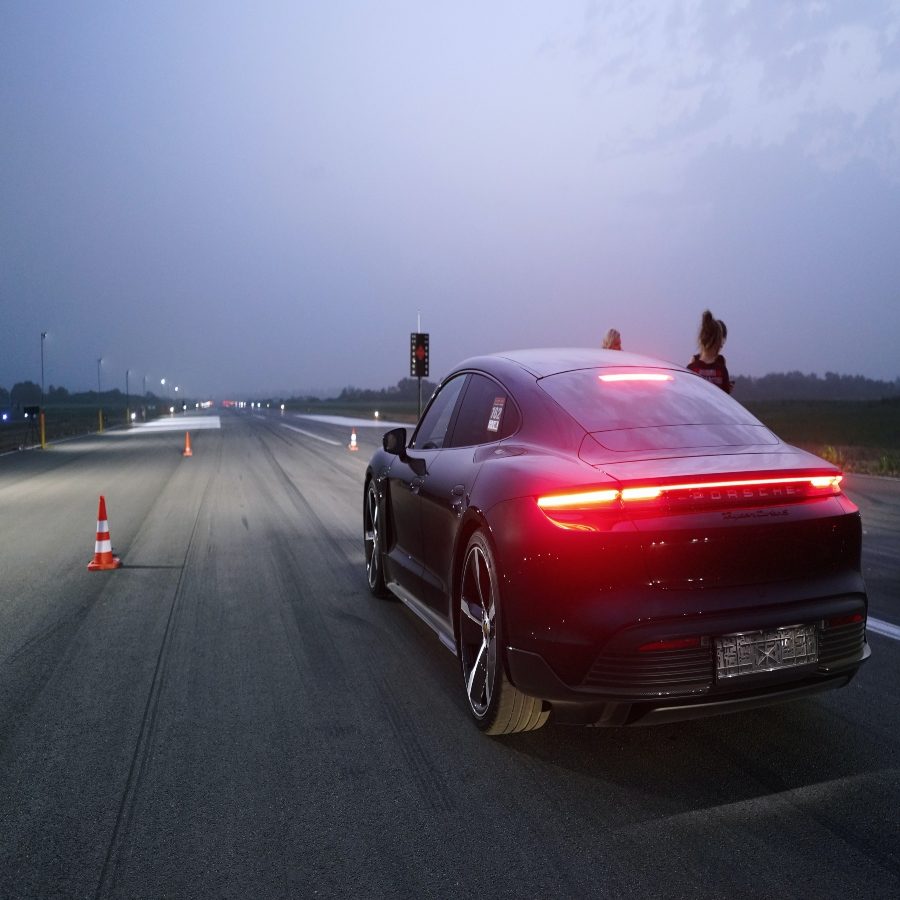
Stealing
When the boys’ father came to pick them up at their mother’s and take them for the day, he was not driving his green Ford truck but a red Porche that could not have been his. “What do you think, boys?” His voice swelled with aggression and enthusiasm and with a sudden love for himself. He was wearing his monkey suit from the garage where he worked and had the smell of metal tools and the strong flammable odors of oil and gas and gin on him.
Standing out on the lawn, the boys’ mother was still wearing her pink nightgown, ripped and coffee-stained on the sleeves. It blew in the wind and made her look fragile and discarded like a candy wrapper. “What do you think you’re doing? That car’s not yours. Boys,” she said, “you’re not going anywhere with him today.” But the boys were already in the car, their eyes looking out at their mother through the dark glass that was made for speed. When she advanced, their father pushed her and she tumbled over the burnt yellow grass and before she could stand again the little green house had disappeared and the man and the boys were driving on the freeway towards the mountains above the city, then in and out of the tunnels that pierced the mountains until the buildings and streets of the city were tiny, like sutures, in the valley below.
The interior of the car had an expensive, feminine smell, a light perfume of leather and freshness. As the man drove, he talked about the car as if it were a beautiful woman who needed him to do something great, something heroic for her. “Listen to her purr, boys,” he said. “We’re not going to let her down. We’re going to give her all we’ve got.”
Their mother no longer loved their father. Both boys knew that, even the smaller one who was not yet five. “Where are we going to, Daddy?” this one asked.
“Oh no you don’t,” the man said. “I’m happy! Happy!” He said the word as if hammering on it. “And I’m not going to let you sour pusses ruin my fun, you hear?”
The boys kept asking him that same question, but their father only answered them with the figures of their acceleration. “Ninety,” he said. “One-hundred. One-hundred-and-ten. One-hundred-and-thirty-five.”
The speed pushed the boys back in their seats and pressed against their skins like a firm caress, a preparation or a warning for something painful that would soon come. The windows began to tremble and the car beneath them shook as the man held it in a turn and the mountains and the other cars fell behind them. They had passed the timber-line and huge treeless lumps of snow rose above them.
“One-hundred-and-sixty,” he said. He looked over and back at the boys now, trying to hold his speed. He wasn’t looking at the road. “One-hundred-and-sixty-five.” His eyes were dipped inward and were a strange purple color of black. He seemed hungry. “You never went this fast before, did you? Did you?”
John Fulton currently lives in Boston. His short fiction has been awarded the Pushcart Prize and twice listed under Distinguished Stories in The Best American Short Stories. His fiction has appeared in several journals, including Oxford American, The Southern Review, Zoetrope, The Sun, and The Missouri Review. New stories are forthcoming in Ploughshares and Fiction. He has also published three books of fiction: Retribution, which won the Southern Review Short Fiction Award, the novel More Than Enough, which was a Barnes and Noble’s Discover Great New Writers selection, and The Animal Girl, which was long-listed for the Story Prize.
Submit Your Stories
Always free. Always open. Professional rates.
